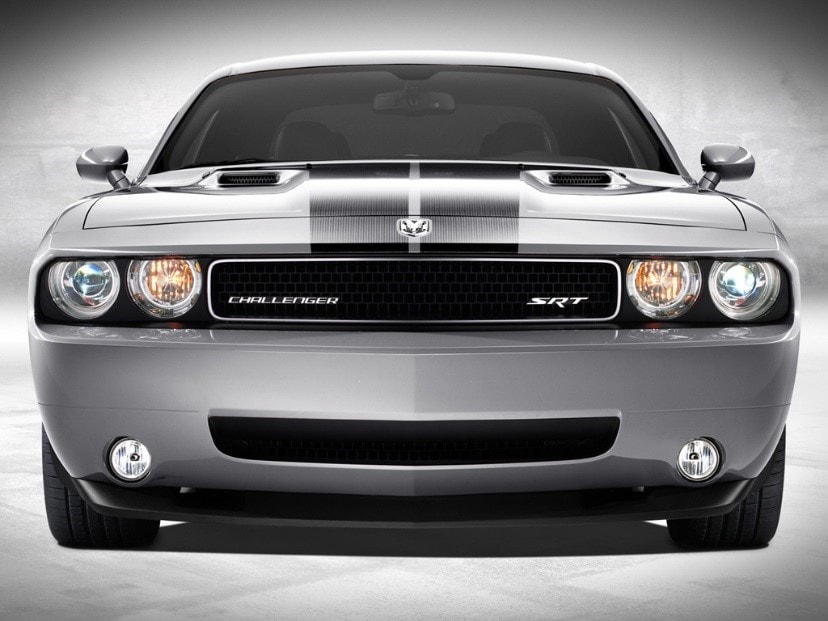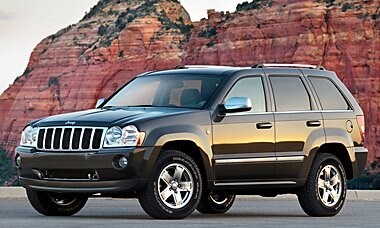Buying a car is one of the largest financial commitments most people will make, only behind purchasing a house. Because of this, it is extremely important to do your research and inform yourself of all of the factors so that you can choose the right car at the right price for you. Every person’s situation is different, which means that the right car for you might not be the right car for someone else and vice versa.
Important questions every car buyer should be asking are: do I buy new or used? Does an SUV, truck, or sedan make the most sense for my lifestyle? Do I value a smaller fuel efficient car or a larger, more versatile car more? These questions can seem daunting as their consequences will affect your financial responsibilities greatly for the remainder of the time you own your car.
Lucky for you, we here at Fredonia Chrysler Dodge Jeep Ram are here to help. We will look into the pros and cons of buying new or used, and the most factors to look into before you make your purchase. With that said, let’s get started.
Buying New Pros:

New 2015 Dodge Challenger
The first pro for buying your car new is that you will experience lower financing interest rates. Although your monthly payments may be higher, the interest added to your financing plan is often much lower on a new car than a used car.
Another pro that affects the long-term cost of your new car is its fuel efficiency. As a general rule, new cars are more fuel efficient than used cars because of technological advancements over time. A difference of even 5 or 6 miles per gallon could save you a significant amount of money over the entire course of owning your car.
New cars also come with a dealership warranty that will cover most repairs or tune-ups that your new car will require in the first couple of years after your purchase. As a general rule, new cars are more reliable than used cars and have a much lower risk of having major maintenance problems. The amount of money you can save on repairs and maintenance with a new car is often significant enough to justify buying new over used in some cases.
Lastly, new cars will have a higher resale value than used cars. A car’s value depreciates significantly over time, and so after 5 years of driving, your brand new Dodge Challenger will be more valuable than any previously owned car, simply due to the year it was made. This isn’t always a huge factor, as many both new and used car buyers keep their car until it dies, however if you plan on selling your car sometime down the road this will certainly play a factor.
Buying New Cons:
One of the major cons of buying a new car is the immediate value depreciation upon your purchase. A car that is bought new depreciates more severely the moment you drive it off of the lot than it does over the next couple of years. After your first year of ownership the depreciation is at a more constant rate, but the depreciation of a car is most significant immediately upon the initial purchase.
Buying new also comes with the con of higher initial and monthly payments. Financing is available for new cars, but due to the higher price of new cars the monthly payments can be significantly higher than those of a used car. Many people will only look at this factor when deciding whether to buy new or used and decide on buying used, but it is important to realize that there are many other financial factors outside of this monthly cost that can affect the amount of money you put into your car.
Because of the higher value of new cars, the insurance rates on new cars are more costly than those of used cars. More advanced safety features can help lower rates for new cars, but the high value of new cars will keep insurance rates above the rates of used cars.
Buying Used Pros:

Used 2010 Jeep Grand Cherokee
The main pro that most people look at when buying used is that the monthly payments and the initial cost for used cars are normally significantly lower. The car is less valuable, so the payments tend to stay on the lower side. This is a bottom line difference that people point to when deciding between new and used, and for good reason. A savvy buyer might even be able to find a low cost used car that is reliable and does not need many repairs, but this is rare and requires extensive amounts of research.
Another pro of buying used is the lower insurance rates. This is another monthly payment that is lower than those of new cars, which makes buying used so attractive to many car buyers. People see that they will have lower monthly payments, and the decision seems obvious. Although this argument is valid, it is important to consider all financial factors before jumping to any decisions.
Buying Used Cons:
With websites like Carfax.com, finding reliable used cars has become much easier, but caution must be taken when looking at any used car. Used cars are always less reliable and more susceptible to major maintenance problems than a brand new car. Without a warranty to protect you from pricey maintenance costs, the cost for repairs can become significant and could end up forcing the cost of owning a used car closer to the cost of buying new.
While it largely depends on the type of car you buy, used cars are also generally less fuel efficient than comparable new cars. This difference may not seem too extraordinary, but with gas prices fluctuating so frequently, the amount of money a fuel efficient car will save you could be pretty significant.
A big con for buying a used car is that the car’s resale value will be extremely diminished by the time you are looking for a new car. The amount of value your car holds after a second owner and an additional five years of use and driving miles will be very low. Don’t expect to be selling your used car for a great price sometime down the road.
When looking for financing options on used cars, your options are to look for a loan from either a bank or a credit union. These establishments will require higher interest rates on your financing than that of new cars, but because your monthly payments and bottom line price will be lower, the interest rates may not add too much cost to your car. Still the amount you will be paying in interest will be at a higher percent than if you were to buy new.
Conclusion:
Although new cars may require higher monthly payments for financing and insurance as well, they will have higher resale value and much less cost when it comes to maintenance and repairs. If you have the money available on a monthly basis to make the higher payments, new cars offer a higher value and more reliability than used cars. They are worth the investment if your budget allows for it. Used cars on the other hand offer lower monthly payments, but the risk for both major and expensive minor maintenance problems is much higher. Used cars fit the budget better for most people, but their resale value and low level of reliability hurt their long term value.
Whether you decide you want to invest in a reliable new car or are looking for something more cost effective like a used car, we here at Fredonia Chrysler Dodge Jeep Ram would love to put you in the right car for you at a great price. Come by our showroom at 258 W Main St, Fredonia, New York or give us a call at (716) 673-1371 for great deals on the best new and used cars for sale in the Buffalo area.
Sources:
https://www.bettermoneyhabits.com/car-buying/preparing-to-buy-or-lease/buy-new-used-car.html
http://www.iwillteachyoutoberich.com/blog/cost-vs-value-should-you-buy-a-new-or-used-car/
Photo Credits:
https://www.fredoniachryslerdodgejeepram.com/new-inventory/index.htm